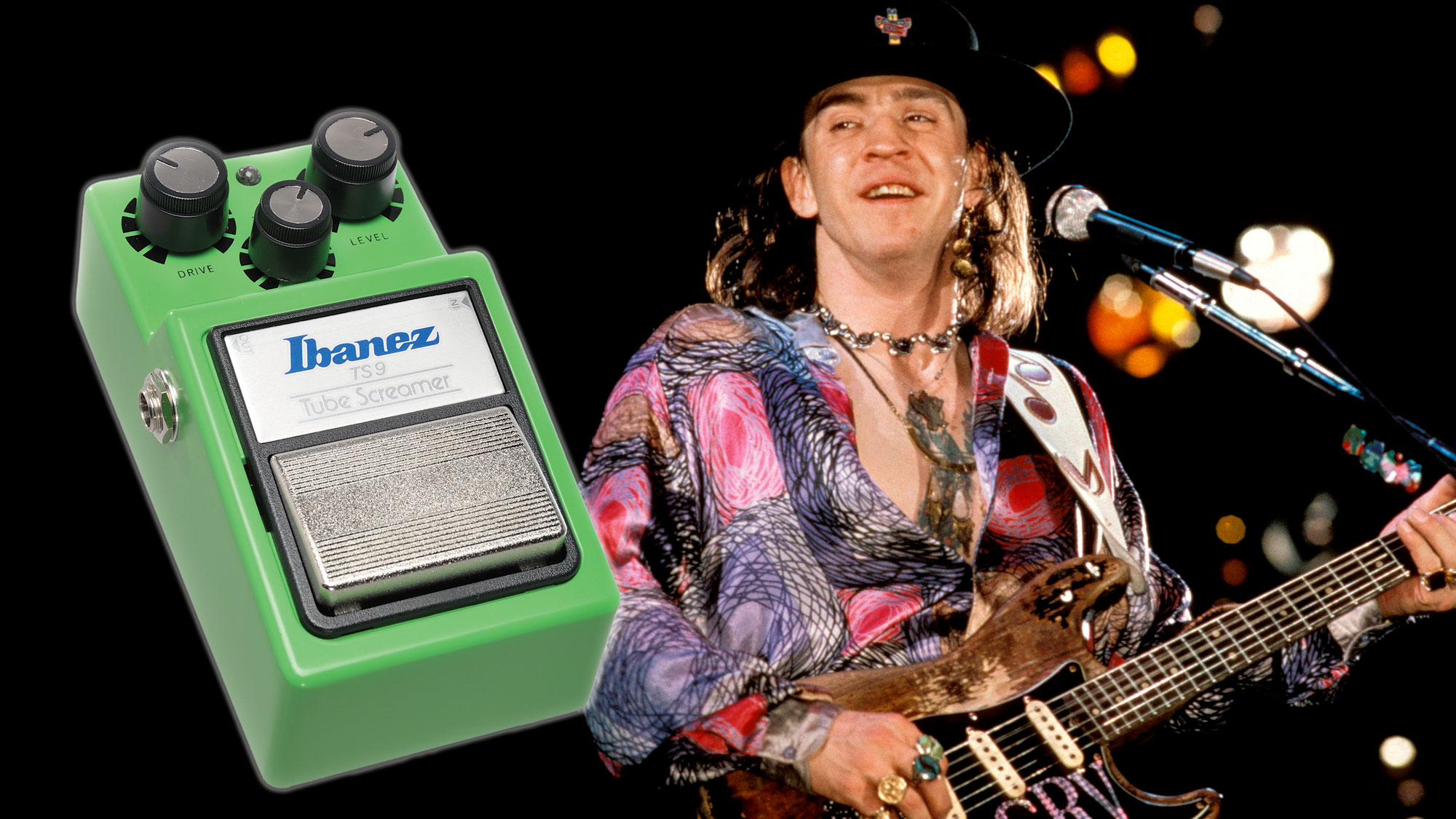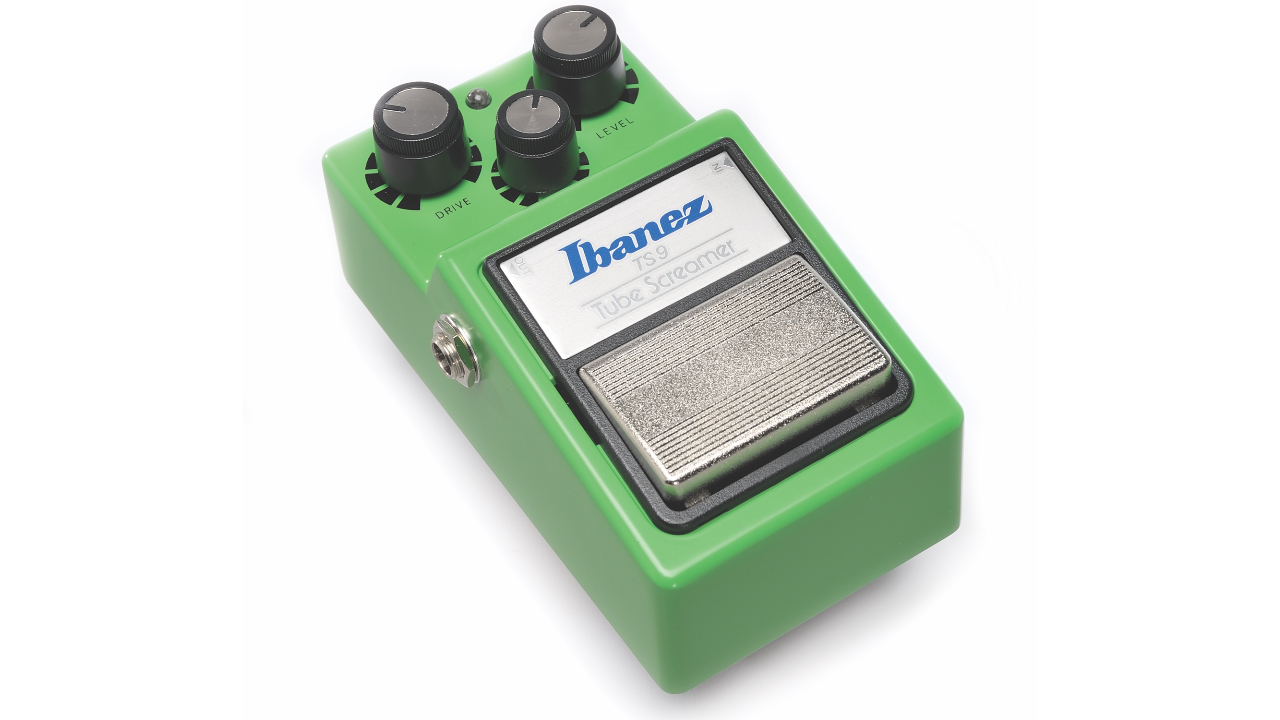
The Ibanez Tube Screamer is one of the most popular overdrive pedals of all time, used by dozens of famous guitarists on hundreds of well-known tracks – but the main reason for its perennial success is overwhelmingly due to its association with Stevie Ray Vaughan.
If you’ve looked around for info on the Tube Screamer model that Vaughan used, you’ll likely see the first iteration TS808 lauded as the ne plus ultra version for authentic SRV tone.
This is usually repeated ad infinitum by writers who haven’t done thorough research or, even worse, by pedal designers and vintage guitar dealers who are likely more concerned about profit than truth or historical accuracy.
While it is indeed true that Vaughan once used a TS808, it was only for a very brief period from late 1981 through early 1982, and he never used an 808 on any of his officially released recordings.
Vaughan’s actual Tube Screamer of choice was the circa 1982-85 TS9 model. Vaughan consistently used a TS9 on stage and in the studio from mid-1982 through mid-1988 on the bulk of his peak career output.
The only exceptions are the In Step and Family Style albums and the studio version of Boot Hill on The Sky Is Crying where he used the TS10 Tube Screamers that replaced the TS9s in his rig.
Vaughan’s use of the TS9 is exceptionally well documented in live photos and videos from 1982 onwards and numerous inventory, insurance and customs declaration documents.

If you’ve dug into Tube Screamer lore, you’ve probably noticed obsessive ruminations about certain op amp chips like the JRC-4558. Here’s another truth – Vaughan wasn’t fussy about this kind of minutiae, so you really shouldn’t be either.
Many amateur pedal builders who have experimented with swapping op amps admit that they can hear only subtle differences between various op amps, if any. Usually the most notable contrasts in tone and character emerge when the gain (drive control) is almost fully boosted, which isn’t a setting that SRV used on his TS9s anyway.
Vaughan particularly liked how the Tube Screamer enhanced the vocal character of his Vox V846 wah, so anytime you hear Vaughan using a wah you can be sure the Tube Screamer was on, too
Rather, Vaughan dialed his TS9 with the Level knob nearly or all the way up and with the Drive knob nearly or all the way down for a “clean” boost setting. He also liked the pedal’s distinctive lower midrange emphasis.
“I use the Tube Screamer because of the tone knob,” he told Frank Joseph in the September 1983 issue of Guitar World. “You can turn it on slightly to get a Guitar Slim tone, which is how I use it.”
It should be noted that Vaughan engaged his Tube Screamers very sparingly. For example, on his debut Texas Flood album, he used it only for his gritty solos on the title track and Testify, and he didn’t use it at all on David Bowie’s Let’s Dance.
Vaughan particularly liked how the Tube Screamer enhanced the vocal character of his Vox V846 wah, so anytime you hear Vaughan using a wah you can be sure that the Tube Screamer was on, too.
You can spend hundreds or even thousands on an original ’80s Tube Screamer. Numerous pedal builders offer Tube Screamer modifications, and dozens, perhaps even hundreds, of Tube Screamer-derived and -influenced stompboxes are available from boutique and mainstream companies alike.
However, it’s truly hard to beat the TS9 reissue that Ibanez still offers today. It sounds more than good enough, it’s affordably priced and it won’t break your heart should it get stolen or ruined after some boisterous barfly barfs Bourbon all over it.
Stevie Ray Vaughan Tube Screamer setting
- Drive: 2-3
- Tone: 3-5
- Level: 9-10
This setting works well with pretty much any guitar and amp rig, but it sounds especially good with a Strat or Tele with a black-panel Fender amp.
The TS9’s boosted low midrange and slightly rolled off bass gives single-coil pickups extra body, heft and definition that’s particularly ideal for solos that cut through the mix.







